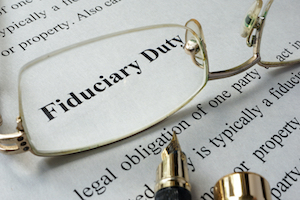The Department of Labor (DOL) released the Retirement Security Rule, informally known as the fiduciary rule, to great fanfare on Tuesday—including a press conference and White House ceremony.
Now that it’s released, what changes does the final rule make to the proposed rule? Here are eight important items.
Regular Basis Test
Under the final rule, a person is an investment fiduciary if they provide an investment recommendation for a fee and either (1) represent that they are an ERISA fiduciary or (2) meet the regular basis test.
The final rule made a number of changes to the regular basis test, including restricting a regular basis fiduciary to someone who provides “professional” investment advice on a regular basis. This should help clarify that most normal actions by a TPA or HR professional of the employer do not result in fiduciary status. The DOL also added language clarifying education and certain activities that are not considered recommendations.
Sophisticated Investors
The rule does not carve out plan sponsors as “sophisticated investors” generally, recognizing that even large sponsors may need assistance.
It does, however, update the definition of a retirement investor to indicate the investor must make decisions for the plan by removing the advice-only fiduciary from being a “retirement investor.” Practically this means that advice given to investment advisors, who are one group of sophisticated investors, may not result in fiduciary status.
Finally, the DOL did note in the preamble that to the extent that sophisticated investors, such as investment professionals working for employers or other financial institutions, might not expect an investment professional to be acting solely in the investor’s interest. In those circumstances, fiduciary status would not arise unless the advisor represents they are acting as an ERISA fiduciary, but the DOL stressed that such a conclusion would be based on facts and circumstances of the interaction.
‘Hire Me’
The final rule added a clarifying paragraph to the definition of fiduciary advice that addresses “hire me” conversations and an exemption for recommendation to hire as a 3(38) in PTE 2020-02. The clarification includes the following example:
“For example, a salesperson’s recommendation to purchase a particular investment or pursue a particular investment strategy is not investment advice if the person does not represent or acknowledge that they are acting as a fiduciary under ERISA Title I or Title II with respect to the recommendation and if the circumstances would not indicate to a reasonable investor in like circumstances that the recommendation is based on review of the retirement investor’s particular needs or individual circumstances, reflects the application of professional or expert judgment to the retirement investor’s particular needs or individual circumstances, and may be relied upon by the retirement investor as intended to advance the retirement investor’s best interest.”
This language confirms that “hire me” conversations don’t necessarily result in fiduciary status, but it stops short of exempting such conversations entirely. Thus, continued caution is warranted in such conversations.
Timing of Disclosure
However, very important relief was provided for the disclosure that would be due under PTE 2020-02 if the hire me conversation rises to the level of a recommendation and the advisor is ultimately hired. Disclosure must be provided “[a]t or before the time a covered transaction occurs, as defined in Section I(b).”
“For purposes of the disclosures required by Section II(b)(1)-(4), the Financial Institution or Investment Professional is deemed to engage in a covered transaction on the later of (A) the date the recommendation is made or (B) the date the Financial Institution or Investment Professional becomes entitled to compensation (whether now or in the future) by reason of making the recommendation.”
This means that even if the hire me conversation is a recommendation, the advisor can comply by providing a disclosure in connection with the ultimate engagement.
Robo-advice
The DOL asked in the proposed rule whether the final rule should cover robo-advice providers. Under the final rule, robo-advice providers can use the PTE 2020-02, making it clear that plans can use robo-advisors.
Web Disclosure
The proposed rule inquired whether investment fiduciaries should be required to post certain information on publicly available websites. Many commenters objected to the suggestion and argued the cost and burden would outweigh the benefits. The final rule does not require web disclosure.
Severability
The preamble indicates the DOL intends for the provisions to be severable, but elected not include specific language in the text of the rule. This reflects the DOL’s desire to position the rule for potential legal challenges to the rule.
Effective Date
The final rule will become effective 150 days after publication in the Federal Register, but full compliance is not due until a year after that date.
In the meantime, fiduciaries must comply with the Impartial Conduct Standards and fiduciary acknowledgment requirement.
Kelsey Mayo is the American Retirement Association’s Director of Regulatory Policy.
- Log in to post comments
